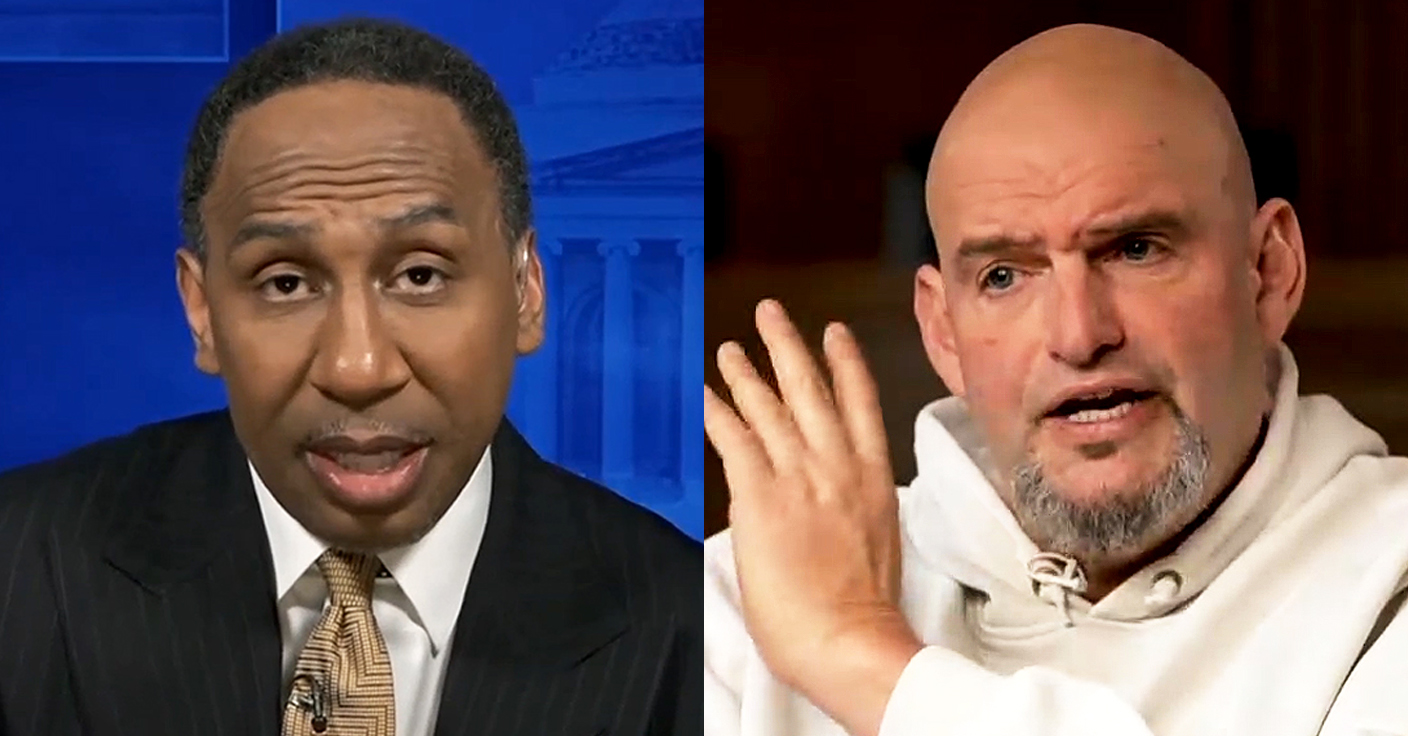
A new Yale poll finds that Sen. John Fettermann (D-PA) and ESPN host Stephen A. Smith are the only two individuals who registered negative net favorability ratings among more than a dozen names floated to Democratic voters recently.
The Yale Youth Poll released its spring 2025 survey of the prospects of potential 2028 candidates and found both men upside down with their party’s YOUNG voters.
Fetterman, a pro-Israel Democrat unafraid to cross the aisle to work with Senate Republicans, came in with –17.2 net favorability among his party’s registered voters.
Smith, who has recently floated a presidential run and increased his political rhetoric in recent months, fared similarly with a –16.9 net favorability among Democrats.
We found that a plurality of Democrats (and Democratic-leaning independents) would vote for former Vice President Kamala Harris (27.5%) if the 2028 Democratic primary were held today. Alexandria Ocasio-Cortez (21.3%) came in second, Pete Buttigieg in third (14%), and no other Democrat received more than 5% of votes. The top three candidates were the same among young Democrats only, with even stronger support for Harris (37.4%) and Ocasio-Cortez (28.2%) and weaker support for Buttigieg (9.7%).
Harris, Ocasio-Cortez, and Buttigieg also have the highest favorability ratings among Democrats, with Harris and Ocasio-Cortez both at about +60 net favorability. John Fetterman and Stephen A. Smith were the only two figures tested with negative net favorability ratings among Democrats (-17.2 for Fetterman and -16.9 for Smith). Young Democrats match these relative patterns but tend to view all political figures listed less favorably than Democrats overall do.
The survey also found that if the 2028 Republican primary were held now, 50% of GOP voters under the age of 30 would support Vice President JD Vance.
The Yale Youth Poll was conducted entirely online from April 1 to April 3 and pulled from a sample of 4,100 registered voters, 2,025 of whom were under the age of 30.
The survey reported a margin of error of +/- 1.9 percentage points for the full sample of 4,100 respondents and +/- 1.8 percentage points for those under 30.




